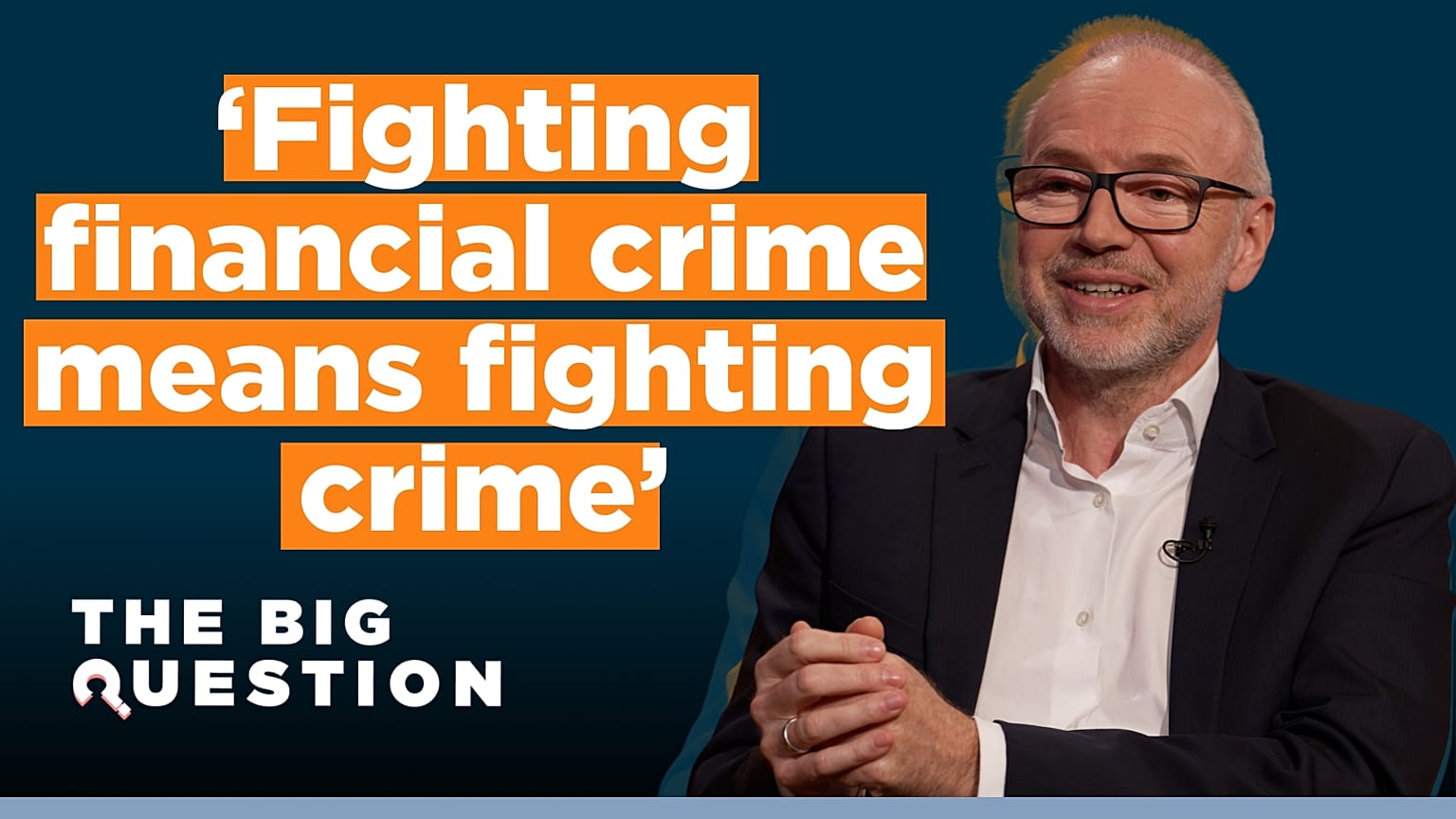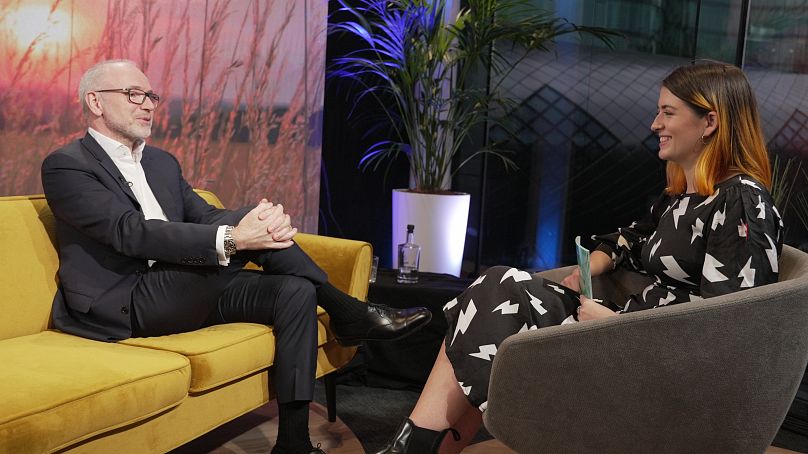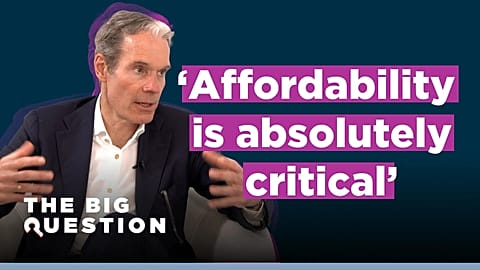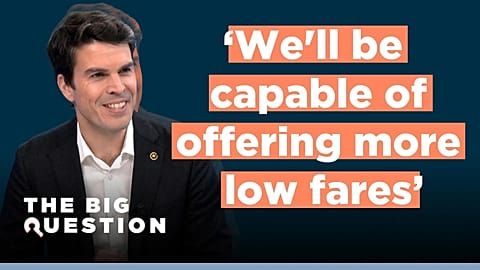The Chief Financial Economic Crime Officer at Rabobank tells The Big Question’s Hannah Brown: “Behind financial crime, you have crime - drug addiction, terrorist financing and modern slavery. And this money has to enter into the system.”
The Big Question is a series from Euronews Business where we sit down with industry leaders and experts to discuss some of the most important topics on today’s agenda. In this episode Hannah Brown met with Philippe Vollot, the Chief Financial Economic Crime Officer at Rabobank, to discuss how the war in Ukraine has affected financial crime fighting.
 ADVERTISEMENT
ADVERTISEMENT
 ADVERTISEMENT
ADVERTISEMENT
Did you know there is between 800 billion and two trillion euros of dirty money flowing around the world?
Financial crime doesn’t stop at someone tricking a big corporate bank out of a bit of money, it funds gang crime, drug and human trafficking, terrorism and modern slavery.
“So to be fighting financial crime fundamentally means fighting crime.
“That's why for me it's an important job because you can have a positive impact on society if you do your job properly,” Philippe Vollot tells Euronews.
How do banks identify financial crime?
Believe it or not, banks screen every single transaction made by accounts held with them.
At Rabobank in the Netherlands that’s around 4 billion transactions per year.
“Of course, I don't have thousands and thousands of people doing this manually - we have systems,” Philippe explains.
“We have what we call algorithm scenarios which are actually detecting certain patterns.”
More often than not, an activity flagged by the system is perfectly explainable when assessed by human investigators.
Anything more suspicious, however, gets investigated in more detail and passed onto an financial intelligence unit (FIU) - a government department responsible for investigating and escalating action against financial crime.
“It's a needle in a haystack, but what really drives me when I wake up in the morning, when I have my first coffee, it's effectively 'Okay, what can I do to be more effective?',” Philippe adds.
Philippe Vollot is a leading expert in financial crime across Europe and has been brought in by several banks in the past to solve major crime issues.
He works with a team of highly trained specialists to identify a variety of tricky and unique criminal behaviours. According to Philippe, one of the big challenges is being as effective as possible, without bothering the 99% of their good customers.
“While we're not law enforcement and I will never know if this entity is a criminal - I don't have these means to find out. I have instances where I know have been helpful,” says Philippe.
“You find out that actually there was some cash movement and there was money being used to rent a warehouse somewhere. And then you think, ‘Oh, that might be helpful for law enforcement to know about this’.
“And then, of course, the happy time is when a year later you find in the press names and you see that people went to jail.”
What has Russia’s invasion of Ukraine got to do with financial crime?
As well as fighting against the classic forms of financial crime such as money laundering and fraud, banks also have to ensure the transactions going through their accounts don’t contravene sanctions.
Sanctions are nothing new for banks but since Russia invaded Ukraine in February 2022, as Philippe describes it, a “tsunami of sanction packages” have been introduced against individuals, businesses and regions.
Philippe tells The Big Question that Russia is now the most sanctioned country in the world. With more than 12,000 sanctions in place, it has more sanctions against it than North Korea and Iran combined.
When the sanctions were first brought in, transactions were slowed as banks had to do more in-depth checks to find out where money was coming from and going to.
In several cases, companies in a third country were being used as a front to try and circumvent sanctions.
“In the first few weeks of all these sanctions being imposed on Russia, I never had so many clients calling me or sending me emails [to thank me] because actually we've been protecting them, some clients didn't even realise they were breaching sanctions,” Philippe reveals.
How can Europe be better at fighting financial crime?
“Criminals do not open one account in one bank,” Philippe laments.
“Criminal organisations are super smart and they will always try to find ways to penetrate the financial system.”
With current GDPR rules, banks are not allowed to share information with each other about suspicious account holders.
“Let's say I identify a customer, which I think is above my risk appetite, and I kick this customer out of the bank. He can open an account in the bank in front of mine, and I cannot call my counterpart in this bank and say ‘Careful with this guy’.”
Philippe hopes for a development of public private partnerships which will allow the sharing of anonymised data to help identify patterns of criminal activity. All the while continuing to protect good customers.
Watch the full episode above to learn more about the fight against financial crime.


















